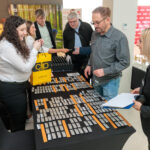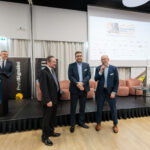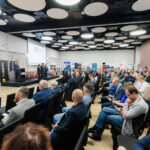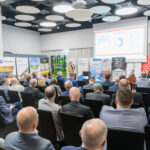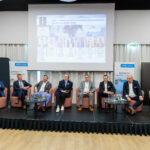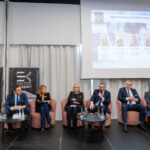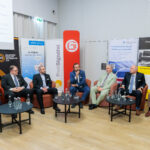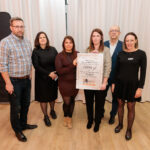Press release from the XIV International Rail and Intermodal Congress
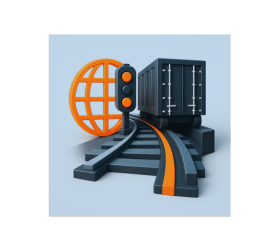
The XIVth International Rail and Intermodal Congress, which took place in Wisla on 12-13 March, was once again the arena for key discussions on the future of the transport sector. Over 200 experts from Poland, the Czech Republic and Slovakia analysed the challenges and opportunities for infrastructure development in the context of dynamic geopolitical and economic headwinds. The event, organised by OLTIS Polska and První Signální with the expert support of ProKolej Foundation, provided a platform for exchange of experience and presentation of innovative solutions for the rail and intermodal sector. The main topics of the debates comprised competitiveness of freight rail, the role of intermodal transport in the stability of supply chains, modal shift, and innovations in rail transport.
Opening debate and key themes
In the opening debate, which was attended by Mirosław Suchoń, Member of the Polish Sejm and Chairman of the Sejm Committee on Infrastructure, representatives of railway companies, the logistics sector and public administration discussed ways to increase the share of rail in freight transport in Europe. The discussion focused on the Green Deal policy, the future of intermodal transport, reasons for the decline in rail transport volumes and the opportunities arising from EU support programmes.
Key thematic blocks
The meeting was divided into two main sessions: International Rail Congress and a section dedicated to Intermodal Transport.
The new geography of intermodal supply chains
One of the main topics was the changing structure of intermodal supply chains in Europe and Poland. Experts, including Dominik Landa (Port of Gdansk), Grzegorz Zdybel (Adampol) and Michał Kubalok (Schavemaker Intermodal), discussed the operational challenges related to transformation of container transport and transport corridors. They also discussed the potential of Polish ports and the necessary measures to increase their competitiveness. The issue of lack of flexibility and capacity of rail routes and the high cost of access to infrastructure, which limits the development of intermodal transport in Poland, was highlighted.
Investing in infrastructure – opportunities and challenges
The panel, chaired by Stefan Akiro Jarecki from the Warsaw University of Technology, focused on infrastructure investments and their impact on intermodal transport. Łukasz Górecki (PKP LHS) and Rafał Zahorski (Ports Szczecin-Świnoujście) pointed out the key obstacles to infrastructure development, such as bottlenecks in the transport network and limited possibilities for financing projects. Krzysztof Grunke (PKP PLK) pointed out the need for balancing modernisation works with maintaining continuity of intermodal transport.
Interoperability and communication
Roman Špaček from OLTIS Group moderated a panel on interoperability and implementation of TAF TSI (Technical Specification for Interoperability of Telematics Applications in Freight Transport). Experts, including Pavel Mazac and Petr Buchníček, presented the benefits and challenges associated with the implementation of these standards and their financing options.
Security and legal aspects
Discussions in this panel covered the causes of rail accidents and ways to improve rail safety. Michał Zięba (Hanton) spoke about the obstacles to the development of intermodal terminals and Mateusz Kosiorowski (Wardynski i Wspólnicy) presented key legal and legislative issues.
Coordination and cooperation of interdisciplinary projects
During the parallel railway panels, the matter of coordination of implementation of interdisciplinary projects was addressed. Aleksander Drzewiecki moderated a debate on the integration of rail traffic management systems with other aspects of infrastructure modernisation. Michal Brožyna (Budimex) and Tomáš Lovás (První Signální) shed light on the use of innovative SRK technologies in international projects.
Innovation and future of the industry
The congress concluded with the debate “Innovations, innovations that become reality”, in which experts discussed the introduction of modern solutions in the rail and intermodal sector.
As in previous years, the participants of the congress supported the Association of SOS Children’s Villages in Poland – “Sindbad”, a family house for temporary stay in Ustron.
We would like to thank all partners and participants for their participation in the event and we look forward to the XVth anniversary edition of the congress next year!
